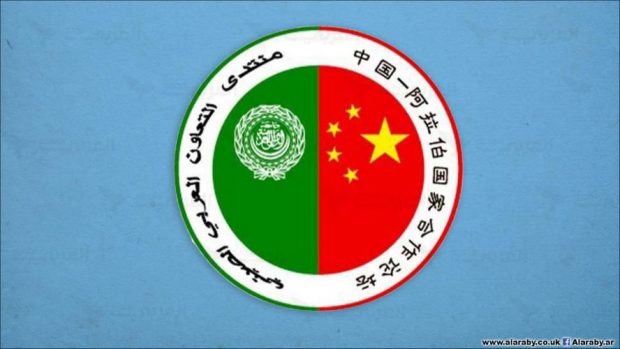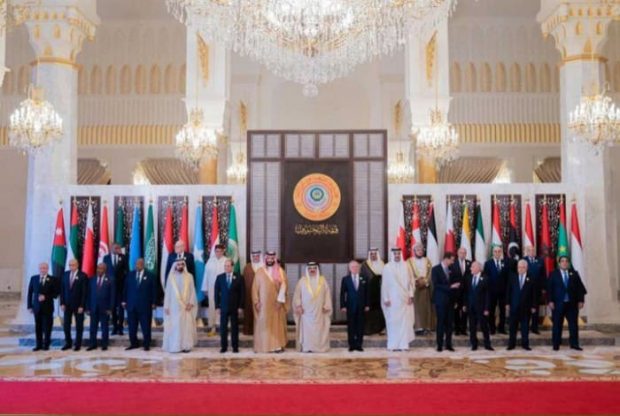China-Arab States Cooperation Forum: Taking shared growth to the next level?

MANAMA: The 10th ministerial meeting of the China-Arab States Cooperation Forum will convene in the Chinese capital Beijing on May 30.
Four Arab leaders, two from Asia and two from Africa will attend the forum in a clear indication of its growing significance.
King of Bahrain Hamad bin Isa Al Khalifa, President of the United Arab Emirates Sheikh Mohammed bin Zayed Al Nahyan, President of Egypt Abdel Fattah El Sisi and President of Tunisia Kaies Saied will address the forum and hold bilateral meetings with President of China Xi Jinping “to discuss bilateral relations and exchange views on regional and international issues of common interest.”
The forum was set up on January 30, 2004 in a memorandum signed by the Arab League and China. It comprises China and the 22 members of the Arab League.
It was initially a political decision that advanced cooperation in a wide range of issues that included investments, commerce, the economy, culture, and tourism.
The Chinese leader has played a considerable role since he assumed power in 2013 in bolstering Arab-Chinese relations.
Since its establishment, the Forum has held 18 senior officials’ meetings, seven senior official level strategic political dialogues.
China has been the largest trading partner of Arab countries for years. Chinese investments in Arab countries have reached almost $250 billion, while the volume of Chinese trade with Arab countries reached $398 billion in 2023, up from $36.7 billion in 2004, more than a tenfold increase.
In 2023, at the 10th China-Arab Business Conference and the eighth Investment Summit, 30 economic and trade agreements, worth $9.66 billion, were signed.
More than half of the Arab countries have comprehensive strategic partnerships with China.
Experts said that the Belt and Road Initiative has largely contributed to the expansion and deepening of the relations between the two sides.
At the first China-Arab States Summit in the Saudi capital Riyadh, in December 2022, President Xi Jinping called for fostering a closer China-Arab community with a shared future.
In a letter he addressed to the 33rd Arab Summit held in Bahrain on May 16, President Xi said, “looking forward to the future, the Chinese side is keen to work with Arab countries to continue to perpetuate the spirit of Chinese-Arab friendship and build the Chinese-Arab community for a shared future at a higher level, thus contributing to building a community with a shared future for humanity.”
China has been seen until recent times mainly as an economic partner; however, diplomacy, and consequently soft power, are now gaining new dimensions, fostered by the fact that Beijing sees eye-to-eye politically with many Arab capitals, especially amid the latest developments in the region and their impact on security and stability.

In Bahrain, the visit by King Hamad, the Chairman of the current session of the Arab Summit, is seen as a new phase in the progress of closer ties between the two countries that established diplomatic relations in 1989.
“The relations based on mutual respect and a sincere desire to build a model of bilateral cooperation that serves shared interests,” according to local reports.
“King Hamad visits China as the Chair of the Arab Summit held on May 16 in Manama and during which Bahrain tabled initiatives that were supported by the Arab countries. They are related to the present and future of common Arab action, and the positions highlighted in the ‘Bahrain Declaration’ issued by the summit on many regional and international issues.
“Bahrain, through its presidency of joint Arab action, is keen to strengthen and deepen Arab relations with influential international powers in a way that serves mutual interests and builds a balance in international positions towards Arab issues.
“This important visit also comes amid very delicate and sensitive regional and international situations, mainly the developments in Gaza and other disputes, conflicts and wars in various regions of the world.
“The meeting between King Hamad and President Xi Jinping is most likely to address bilateral and Bahrain’s Arab-supported initiative to hold an international peace conference, in addition to humanitarian initiatives aimed at fostering the stability and development of the region.”




